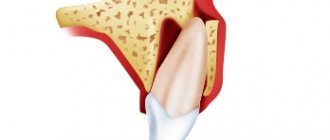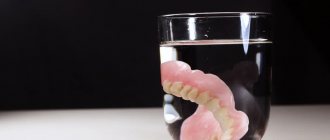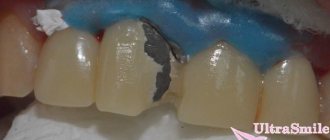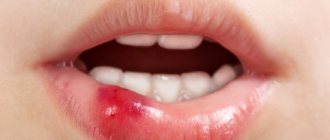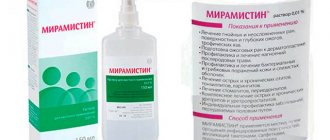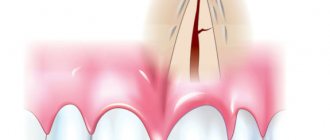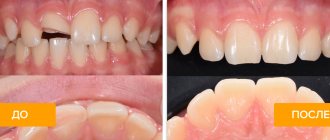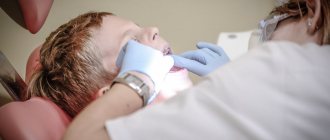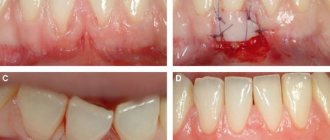In children with dysarthria, the mobility of speech and facial muscles is severely limited, so they pronounce almost all sounds unclearly and incorrectly, have a quiet voice, and a disturbed breathing rhythm.
They do not know how to chew solid food, rinse their mouths, fasten buttons, draw; any actions requiring precise movements are difficult for them. In their practice, speech therapists most often encounter relatively mild forms of dysarthria. Otherwise they are called the erased form or dysarthric component. If severe degrees of dysarthria are easy to diagnose, then erased forms of the disorder can only be recognized by an experienced speech therapist or neurologist.
Many children with dysarthria may have been attending speech therapy groups for some time by the time the diagnosis is made, but without any results. Some children were observed by a neurologist in early childhood (1-2 years), but were removed from the register when visible improvements occurred.
Dysarthria is dangerous because it seriously inhibits the child’s speech development, since connections between the speech centers of the cerebral cortex and the articulatory apparatus are lost. The entire pronunciation aspect of speech is disrupted. The child speaks, but since he pronounces all sounds indistinctly, it is difficult to understand him. If correction is not started in time, then at school the child will begin to have serious problems with mastering written speech - dyslexia and dysgraphia.
The child often swallows saliva before going to bed
Hello!
The child is almost 4 years old, complaints - slight congestion, crusts in the nose, snoring at night, there was (passed) a smell from the nose in the morning. When palpating, the doctor said, “Well, actually, they’re not that big on you, but he still wrote (as it seemed to me, just in case) 2nd degree hr. adenoiditis (?). The smears revealed no pathogenic flora; the rhinocytogram showed 0 eosinophils. During the day, the child does not show any complaints, only sometimes I notice a slight nasal tone. But every night is a test for us. First there was snoring. Next, what, in fact, especially worries me. It started about 3 months ago, I began to notice that the child was waking up to swallow saliva. Further more. There was a slight exacerbation (adenoiditis?), a slightly elevated temperature (37.3), a slight runny nose, and the night swallowing of saliva became simply terrifying. He wakes up every hour and swallows, swallows, swallows. In the dark, the husband actually thought that the child was drinking something in one gulp. At the same time, he sometimes grinds his teeth. The sleep, of course, is very restless; the child does not get enough sleep. What could this endless swallowing of saliva be a symptom of? The ENT specialist sees “nothing like that”! Yes, just in case, tests for worms and lamblia are always clean. I'll add more. Sometimes there are complaints about a stuffy ear in the morning.
The symptoms you described may be a manifestation of enlarged adenoids and adenoiditis. It is not entirely clear what “ENT sees nothing” means if these diagnoses appear in your description. It is not the swallowing of saliva itself that is important, but the way the nose breathes, including at night.
The symptoms you described may be a manifestation of enlarged adenoids and adenoiditis. It is not entirely clear what “ENT sees nothing” means if these diagnoses appear in your description. It is not the swallowing of saliva itself that is important, but the way the nose breathes, including at night.
I got the impression that if we came “without complaints,” then there would be no diagnosis of stage 2 adenoiditis. (when palpated) there would not be. But since the complaints were probably typical for this diagnosis, they wrote to us what they wrote. By the way, they wrote it with some… hesitation.
Now night salivation has appeared. I read and do not see that increased salivation is a symptom of adenoiditis. And in general, I am somewhat surprised that this diagnosis is made almost without exception, while others seem not to. After all, testing by probing is not particularly accurate, is it?
During the day the nose is completely normal. The problems are only at night. A therapist with extensive experience, whom we have been seeing since birth, is generally extremely surprised by this diagnosis, since the child was ill very little, and, as she said, “he could not have time to grow adenoids.” What other ENT diagnoses are possible with such constant swallowing at night?
Adenoiditis and adenoids are not the same thing. With adenoiditis, the inflammatory process is pronounced; with enlarged adenoids, the child may not have any inflammation or complaints at all. And adenoiditis does not imply a pronounced enlargement of the adenoids, at the same time, the adenoids can temporarily enlarge during illness, including simply ARVI. The fact that complaints appear at night with adenoiditis is due to the fact that there is inflammation of the back of the nose, and it is in a horizontal position that this interferes, mucus accumulates in the pharyngeal cavity (it cannot drain easily as during the day) and the child can swallow and cough etc. Regarding teeth grinding, this is possible due to excess tension in the child’s body if the child does not relax completely.
Please tell me how much you worry about your baby’s illnesses? And try to distinguish between complaints - what worries you, and what worries the child?
Child behavior
The mechanism of regurgitation is such that components of gastric juice enter the esophagus along with the food eaten. As you know, it has high acidity and irritates the esophageal mucosa. As a result, the child experiences discomfort and can become quite restless. It’s very easy to check whether your baby’s anxiety is related to regurgitation - just lay him on his back. If the problem is regurgitation, then the baby will behave even more restlessly. If not, then the horizontal position will not bring him discomfort.
If regurgitation occurs frequently, it is called regurgitation syndrome. It can lead to complications - chronic irritation of the respiratory tract. As a result of the constant aggressive effect of gastric juice on the mucous membranes of the upper respiratory tract, the latter are susceptible to an inflammatory process. Therefore, it is important to monitor the child’s condition and, if necessary, consult a doctor.
What to do with increased salivation in children?
Hypersalivation can occur at absolutely any age. The reasons for this phenomenon may be:
Only a qualified pediatrician can determine the exact cause of increased salivation in a child based on complaints from the mother, father or the child himself and the results of laboratory tests.
Excessive drooling is normal in children, but can also be a symptom of a variety of illnesses. If this symptom is very disturbing, you need to find out the cause of the discharge. The doctor determines the amount of saliva produced within ten minutes. It is also worth visiting doctors of narrow specializations. This is necessary in order to identify the underlying disease that causes severe salivation.
If the cause is not yet completely clear, then if irritation occurs, special ointments or creams should be used to soothe the irritation. It is also necessary to wipe saliva from your chin or lips from time to time. To do this, it will be enough to take a clean handkerchief or dry wipes.
In case of hypersalvation, the doctor prescribes anticholinergic blockers. This drug reduces the influence of the nervous system on the organs responsible for salivation in the child’s body, thereby weakening the secretions.
Danger signs
Responsible parents should be aware of dangerous symptoms that require consultation with a doctor:
- The baby is very restless and often turns around and arches his back when burping or feeding. This symptom may indicate chronic irritation of the esophagus.
- Regurgitation is frequent, abundant, observed after each feeding.
- The child is showing signs of dehydration.
- Regurgitation that first appeared after the first half of the year.
- Prolonged regurgitation without improvement (the same frequency and the same volume of regurgitation in a child 1 year and older).
- Regurgitation is accompanied by an increase in temperature.
- The child does not gain weight or even loses it.
- You cannot independently determine whether your baby is spitting up or vomiting.
There are even more dangerous symptoms, when they appear, you need to call an ambulance:
- The child stopped breathing after burping.
- A bluish tint appears on the lips and face.
- After regurgitation, the child lost consciousness.
- Reflux (stomach contents) that is green or brown can be a sign of intestinal obstruction or stomach bleeding.
Aspiration is extremely dangerous in infants who are unable to clear food from their airways on their own. The only thing parents can do is call an ambulance. It is not recommended to try to help your child on your own.
Hormonal changes
Adolescence for boys and girls, contrary to popular belief, begins at age 12. It is at this age that the first menstruation and morning sperm eruption appear. The beginning of changes in the “natural status” is accompanied by a restructuring of many metabolic processes, which leads to sweating, increased salivation, the formation of acne, and so on.
To help a teenager survive this difficult stage, you need to take him to a doctor. A qualified specialist will give useful recommendations on caring for yourself and your body, nutrition program, and prescribe homeopathic teas or tablets. After passing the first stage of external and internal stabilization of the hormonal background, the phenomena of hypersalivation disappear.
Unpleasant sensation in the throat when swallowing
Unpleasant sensations when swallowing are a symptom that accompanies most ENT diseases. Discomfort in the throat is most often associated with the occurrence of inflammatory processes in the mucous membranes of the respiratory tract. Squeezing, soreness, itching, burning and suffocation can signal the development of sore throat, pharyngitis, laryngitis, mononucleosis, etc.
Only a specialist can accurately determine the type of pathology after the patient has undergone manometry, radiographs and pharyngoscopy examination. When discomfort appears in the throat, many patients develop cancerophobia (fear of detecting a malignant tumor). However, delaying a visit to a specialist can worsen your health and provoke asphyxia.
Why do you experience discomfort in the throat when swallowing? Often, unpleasant sensations when swallowing saliva occur due to psycho-emotional stress. Constant stress, irritation, and depression can lead to overstrain of the muscles located in the lower part of the pharynx. Thus, a so-called “hysterical lump” is formed in the airways, which disappears on its own within a few hours.
Pain and a feeling of a lump in the throat can occur as a result of dysfunction of individual organs and systems, injuries or the development of an infectious disease. Common factors that cause discomfort in the throat include:
If the sensation of a lump in the throat is accompanied by enlargement of regional lymph nodes, hyperthermia and weakness, in 95% of cases this indicates the development of septic inflammation in the respiratory organs.
Control and prevention measures
Physiological ptyalism in infants under six months of age and drooling due to teething do not require action. Since this is not a disorder or disease, it is safer to simply wait out this period and help the child cope with it.
In some cases, it is necessary to get rid of the root cause if excessive salivation in a child is the result of an allergic reaction or taking medications. In this case, you should stop taking the medication or get rid of the allergen.
Gymnastics and massage of the facial muscles in some cases is a very effective measure. In addition, an older child who can already chew and take solid food on his own can be offered solid foods, for example, apples, carrots, for additional training of the masticatory muscles.
In any case, if you are concerned about your baby's drooling for no reason, it is better to dispel these worries with a visit to the doctor.
The specialist will determine the cause of this phenomenon and, if necessary, prescribe additional studies.
Usually, severe pathologies and diseases that cause hypersalivation and ptyalism are known already at birth or some time after. For example, drooling in cerebral palsy is very common.
If any disease is detected, appropriate treatment is prescribed. Sometimes it is enough to follow a certain diet and periodically rinse the mouth with medicinal solutions, and do not neglect cryotherapy. In some cases, surgical intervention may be required to limit the secretory function of the salivary glands or partially remove them.
How to help a child with dysarthria?
Dysarthric children with mild and moderate degrees of impairment, first of all, need regular classes with a speech therapist who knows the technique of speech therapy massage. You need to exercise at least three times a week. If you do not have the opportunity to visit a specialist, then at home you need to perform at least certain elements of speech therapy massage. In addition, the following are required:
- complex of articulatory gymnastics;
- games and exercises aimed at developing correct speech breathing (Strelnikova’s complex has proven itself well);
- finger games;
- massage to relax muscles and give them tone;
- development of fine motor skills - puzzles, mosaics, games with sand and water, modeling, drawing with colored rice, construction sets, exercises with the su-jok ring, etc.;
- general strengthening of the child’s health, in particular the nervous system.
Children with dysatria usually do well in exercises where they need to perform actions according to a model. If, for example, you are teaching a child to fasten buttons, first show it on a doll, then on yourself, then on the child’s clothes, guiding his every movement. Using the same principle, you will have to perform both articulatory gymnastics and breathing exercises: first you give the child a model, and then, under your guidance, he makes the movements independently.
Traditional methods
Treatment consists of rinsing the mouth with infusions of various herbs and their decoctions. Tea, nettle decoction, watery pepper infusion are suitable, and you can also use oak bark or sage. The mass of saliva secreted is also reduced by vegetable oil or very weakly concentrated potassium permanganate.
There are two good recipes that reduce salivation in both children and adults. You need to pour 2 tablespoons of viburnum, which was mashed in advance. Pour boiling water over, cover, wait until it cools completely. Then use the infusion after straining to rinse your mouth; you can drink it throughout the day.
Treatment
Smacking in your sleep is not considered a pathology and does not threaten your health. Rather, this problem is not the sleeper himself, but his environment. There are several secrets that will help solve the problem of teeth movement and grinding:
If such symptoms are caused by a pathological condition or some disease, medications are selected only by a doctor. If a pathology is diagnosed, treatment will not be aimed at eliminating grinding or chewing, but at the root cause.
Source
Pathological changes with hypersalivation
We can talk about the presence of pathology with increased salivation only if additional painful changes or clear signs of a disorder are observed. These phenomena include:
Before speculating, you need to find out for sure whether the child’s salivary glands really work in an “intensified mode” and produce more secretions than expected. It often happens that there is no violation of the secretory function of the salivary glands at all, and the normally produced saliva flows randomly from the child’s mouth only because the child does not swallow it for some reason.
Usually, in children under six months of age, one should not focus on this phenomenon, since any specialist in the vast majority of cases will say that this is normal. Drooling (ptialism) occurs at the level of unconditioned reflexes and soon disappears;
Chewing or grinding of teeth in a child
Chewing or smacking in sleep is an uncontrolled contraction of the oral masticatory muscles, accompanied by a sharp clenching of the jaws, grinding of teeth, smacking, excessive salivation, creaking and other symptoms. In medicine, this problem is called “bruxism.”
The period of time during which a person chews can range from a few seconds to 5-10 minutes. Typically, during the entire sleep phase, several episodes of pathology can be noticed. If one episode lasts more than 15 seconds, cracks and chips in the teeth and soft tissue injuries may occur.
Experts have linked a variety of slurping sounds, chewing, and teeth grinding to other sleep disorders. They accompany somnambulism, snoring, urinary incontinence at night, and the occurrence of nightmares. The popular version attributes the symptoms of bruxism to infection with worms. However, in reality, night sounds of teeth and the presence of parasites in the body are in no way connected.
Most often, manifestations of bruxism, when a person periodically swallows saliva, grinds teeth, smacks or chews, are associated with psycho-emotional disorders, for example, depression, stress, mental overload. Excessively active activities before bedtime, overexcitation, growing internal anxiety, and general tension provoke restless sleep.
If the episodes last no more than 10 seconds and occur 1-2 times per night, then this may not indicate any disease, but simply be an individual feature.
This is especially true for young children, who are often subject to reflexes, and chewing at night is a kind of continuation of the sucking instinct or may indicate the child’s hunger.
Symptoms
The most common symptom of excessive saliva production in children is teething. In children aged 4 to 7 months, baby teeth begin to erupt, and therefore the body reacts to the process by increasing the secretion of saliva. This is a fairly harmless cause of hypersalvation. Afterwards the discharge process will return to normal.
Quite often, stomatitis occurs in children with the symptom of hypersalvation. Stomatitis is characterized by a disease of the oral mucosa and is inflammatory in nature. It becomes quite painful for the baby to swallow, and he stops doing it often, as a result of which saliva remains.
Gingitis can also be one of the causes of hypersalvation. The disease is manifested by inflammation of the gums. Increasing saliva secretion is a protective function of the body.
Increased salivation can be a symptom of clay infestation, as well as a symptom of cerebral palsy.
Ear or throat disease may well be symptoms of hypersalvation.
You should definitely remember: if a child is poisoned by iodine, pesticides or even mercury, you need to immediately take the victim to the hospital. In such cases, of course, there is also profuse salivation.
Why does a 2 month old baby drool? Is this normal?
Many young parents are frightened by the fact that their two-month-old child begins to blow bubbles and drool; they look for the cause in diseases and disorders of the body, although in reality everything is much simpler and there is absolutely nothing to worry about.
If a baby is drooling at 2 months, this is normal.
It's not normal if this doesn't happen. At two months of age, the salivary glands, which were previously in a “sleeping” state and secreted a very small amount of viscous fluid, begin to actively work. At two months, the glands develop and a significant amount of saliva begins to be produced. The baby does not yet know how to swallow it, because before there was no need for this, so he simply releases saliva out. Plus, kids love blowing bubbles, so it also keeps them entertained.
The swallowing reflex is fully formed only by 4-5 months of life, but for now the little man copes with the situation in his own way, and this should be rejoiced as a new stage in his development. True, by the time the baby learns to swallow saliva, his teeth will begin to cut, so it’s better not to hide the bib just yet - he will need it for a long time. It should be borne in mind that teeth begin to form much earlier than they erupt through the gums, so a 2-month-old child is also drooling for this reason.
When a curious baby begins to put everything in his mouth, and 2 months is the appropriate age for this, salivation is further provoked. Therefore, there is no need to worry, it is better to take the necessary measures - get bibs and wipe your beloved child’s chin more often so that constant phlegm does not cause irritation.
If you think your child is salivating more than normal, you can check to see if the abnormality is caused by a medical condition. Most often, young children suffer from allergic rhinitis, which can be triggered by dust, flowering plants and other standard causes of allergies.
Exercises
There are good exercises that help kids cope with this task.
There is a hole under the jaw; it needs to be developed with vibrating movements with your index finger for about 5 seconds.
Another option: find two points at the base of your tongue under your tongue, massage them counterclockwise for about 10 seconds.
A little below the baby’s ears you can find areas where the jaws touch (close). It is necessary to make small circular movements along the points of contact. First you need to do it with your mouth covered, then tell your child to open his mouth for a while and continue the procedure.
You can place an ice cube on your child's lips. Sometimes you should gargle with slightly warm mineral water. Also let your child chew crackers or carrots to train his facial muscles.
When should you contact specialists?
Typically, a dysarthric child sees a speech therapist at 4-5 years of age. This is quite late, but with proper correction and regular classes, the violation can be minimized by the time he enters first grade. The sooner you contact specialists, the higher the chances of success.
A simple test will help determine whether a child has problems with the mobility of the speech apparatus. Stand in front of the mirror, complete the tasks yourself first, then ask your child to repeat them:
- smile, and then stretch out your lips. Only the lips work, the teeth are closed, the chin does not move;
- stick out your tongue and then remove it;
- open your mouth slightly and spread your tongue on your lower lip, hold it in this position for 5 seconds;
- open and close your mouth wide, slapping your lips;
- open and close your mouth, make a tube with your lips, repeat several times;
- open your mouth, touch the corners of your mouth with the tip, move your tongue back and forth, imitating the pendulum of a clock.
Keep in mind that any conclusions can be drawn only after the child has made several unsuccessful attempts, because the first time he may not understand what is required of him. The following signs are reasons to contact a neurologist or speech therapist:
- the child cannot immediately find the right position for the speech organs;
- has difficulty holding them in a given position;
- the smile and protruding tongue seem to move to the side;
- he cannot perform individual movements;
- involuntary synchronous movements of the speech organs.
Dysarthria is also indicated by undeveloped fine motor skills, awkwardness, difficulty maintaining balance, excessive tension or relaxation of the muscles of the face and neck, and nasal pronunciation. If you notice at least two or three of the listed signs, immediately show your baby to a speech therapist and neurologist.
Lump in the throat
Sometimes it is unpleasant for the patient to swallow, but the throat does not hurt. The absence of pain and temperature may indicate hypertrophy of the mucous membranes of the pharynx and chronic diseases. But most often the cause of a lump in the throat is nervous tension.
The occurrence of an unpleasant symptom rarely signals the development of cancer pathologies. In 70% of cases, discomfort goes away without therapy after 4-5 days. But if the sensation of a lump in the throat persists for a week, it is advisable to undergo an examination by an otolaryngologist. The main causes of discomfort include:
The presence of a sour taste in the mouth may signal the penetration of gastric juice into the esophagus. It contains aggressive acids that can damage the mucous membrane of the pharynx and cause pain.

